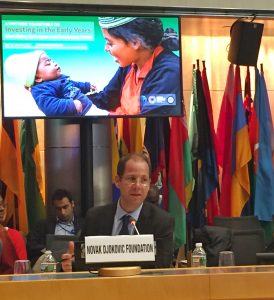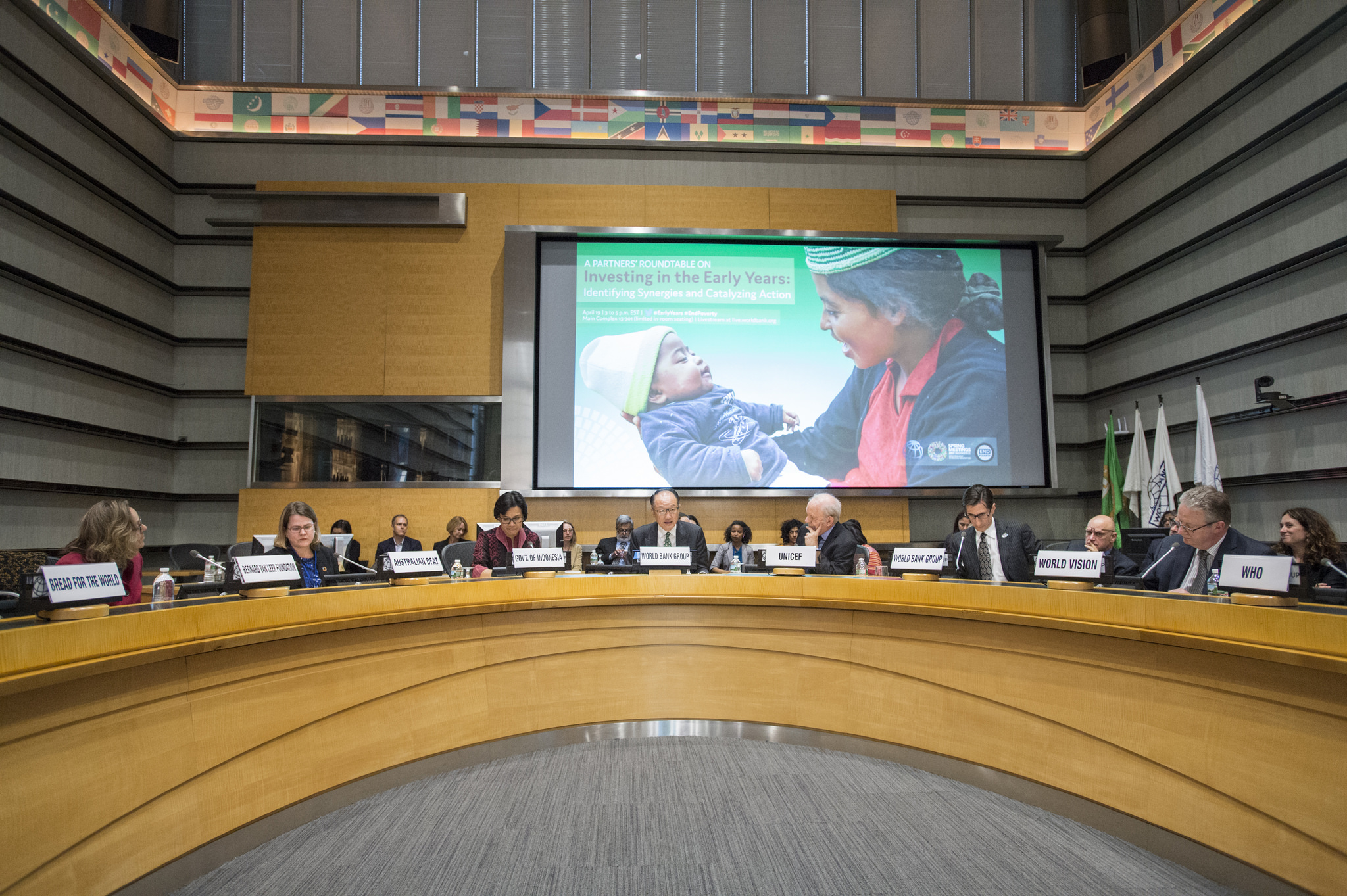The world is beginning to take note that investing in early childhood development (ECD) and education (ECE) matters. High-power meetings that would have been unheard of until quite recently are now materialising at the heart of global organisations, with highly consequential stakeholders in attendance.
During the recent World Bank Spring Meetings in Washington DC, Jim Kim, the President of the World Bank, hosted 30 leaders from foundations, the business community, government and development agencies for a roundtable discussion on “Investing in the Early Years”. It was my privilege to have joined so many familiar faces and to have met so many new ones at this gathering in support of transforming the ECD landscape across the globe.
It is heartening to note that among those in attendance were Tony Lake, UNICEF’s executive director; Jack Brennan, the Chairman Emeritus of the Vanguard Group; Julia Gillard, Australia’s former Prime Minister and current Chair of the Global Partnership for Education; and Sri Mulyani Indrawati, Indonesia’s Minister of Finance. Representatives from Save the Children, the Hilton Foundation, the Children’s Investment Fund Foundation (CIFF) and the Jacobs Foundation were also in attendance and were all highly passionate in describing their very latest work and their views on how best to collaborate globally in order to make an impact in this space. Each one of them voicing their thoughts from unique vantage points.

This was a perfect forum for the Novak Djokovic Foundation to underscore its ongoing support of ECD and ECE, highlighting our work in building new preschools, delivering high quality teacher training, collaborating with the World Bank in Serbia and globally and, indeed, through Novak Djokovic’s participation as UNICEF Goodwill Ambassador. It was a wonderful opportunity to introduce the newly-established Djokovic Science and Innovation Fellowship at Harvard University’s Center on the Developing Child and for us to shine the spotlight firmly on the significant gaps that currently exist in the academic body of knowledge within ECD. The challenges in this field are not entirely financial and there are times when an abundance in funds still does not translate into effective and scalable high quality programs on the ground. We need to attract the very brightest talent to ECD and we need to work vigorously to bridge the latest academic theory with the realities of operational practice in the front-lines.
Collaboration is key and this substantive gathering at the World Bank is one component of a rather large and complicated puzzle. The challenges are too difficult for any single stakeholder to tackle comprehensively and successfully in a unilateral manner. However, we can ensure success and improved future outcomes for girls and boys everywhere through a cross-pollination of ideas, through investing astutely in a complementary manner, through embracing innovation and through challenging the status quo. We thank President Jim Kim for embracing ECD so robustly and, indeed, we thank everyone who attended for their insights and passion. We can all learn a great deal from each other and with every encounter we can push the boundaries of what’s possible just a little bit further.

















